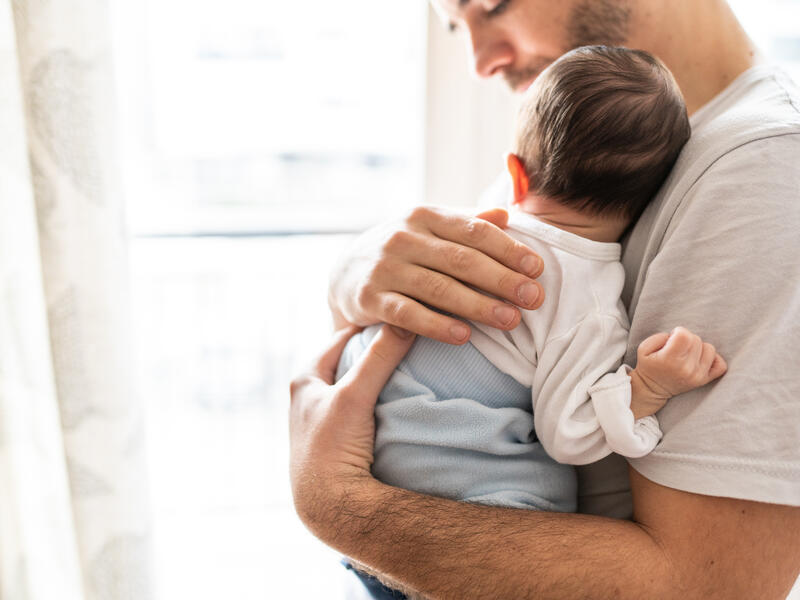You’ve heard it before: “Better put that baby down before you spoil them.”
This parenting suggestion has been handed down from generation to generation and still influences many parents today.
Is this the truth?
It is a myth. You cannot spoil your baby at this age. There is no scientific evidence that responding to crying causes a baby to be clingy. In fact, child development research shows that responding to your baby’s cries has the opposite effect. Warm, in-tune, responsive relationships are what actually help your baby feel emotionally safe and secure. If your baby is met with consistent, predictable and nurturing interactions, your baby will be less whiny and clingy.
Sometime between 6 and 8 months old, your baby will discover “cause and effect,” meaning when your child does something (like dropping a toy), something else happens (a noise). Knowing which cries are in response to an actual need will help you know how to tailor your response.
What your baby is telling you
For younger babies, the main way they communicate with you is through crying and cooing. When your baby cries or coos, they are trying to tell you something important:
- “I need a diaper change.”
- “I’m hungry.”
- “Hold me and make me feel safe.”
- “I want to play.”
What your baby needs
Your baby develops the cognitive ability to connect his to her actions to your responses. Research has proven that responding to your baby’s needs consistently will benefit his or her well-being today and well into the future. Consistently responding to your baby’s cries, cues and vocalizations will teach your baby that you are:
- Reliable
- Trustworthy
- Safe
- Nurturing
Why developing trust matters
Responding to cries and coos develops a sense of trust in your baby. This sense of safety will carry over to your baby’s toddler years and beyond. The foundation of trust helps give your baby self-confidence to try new things. Your baby will be confident enough to leave your side and engage their curiosity. Your child will go explore their surroundings knowing you will communicate your connection back to them. Additionally, your child wants you to be their safety net. Frequent eye contact and physical touch are two ways to build up this sense of trust.
Responding to your crying baby will not create a spoiled baby. It will create the foundation for your baby to feel safe and secure to explore and learn.
For more information, attend the class “Why I Do What I Do” to learn more about:
- Infant and toddler development
- Temperament
- Guidance and discipline
- And more
Learn more
- A parent’s guide to newborns
- Some not-so-obvious reasons your baby may be crying
- Newborn basics: Bonding with your baby
…
Posted In Children's, Family Medicine, Parenting
